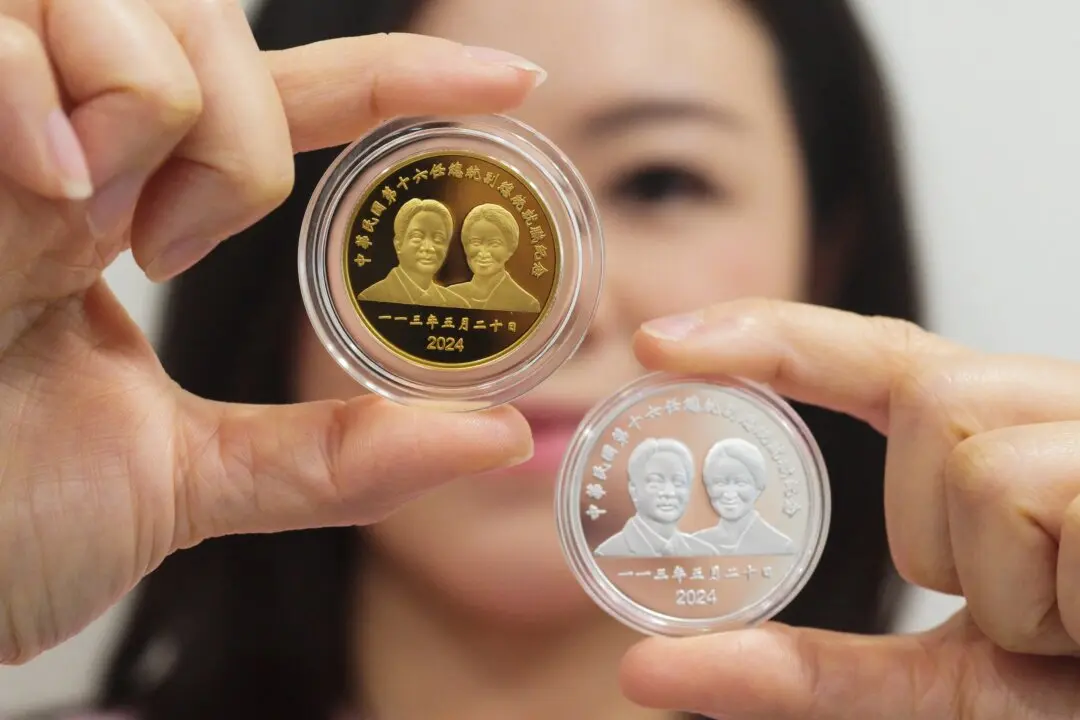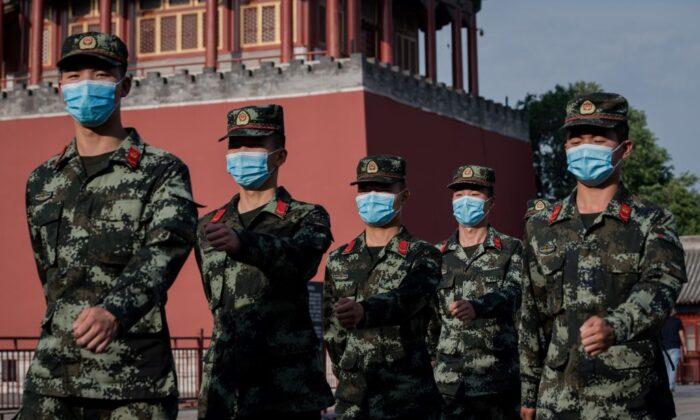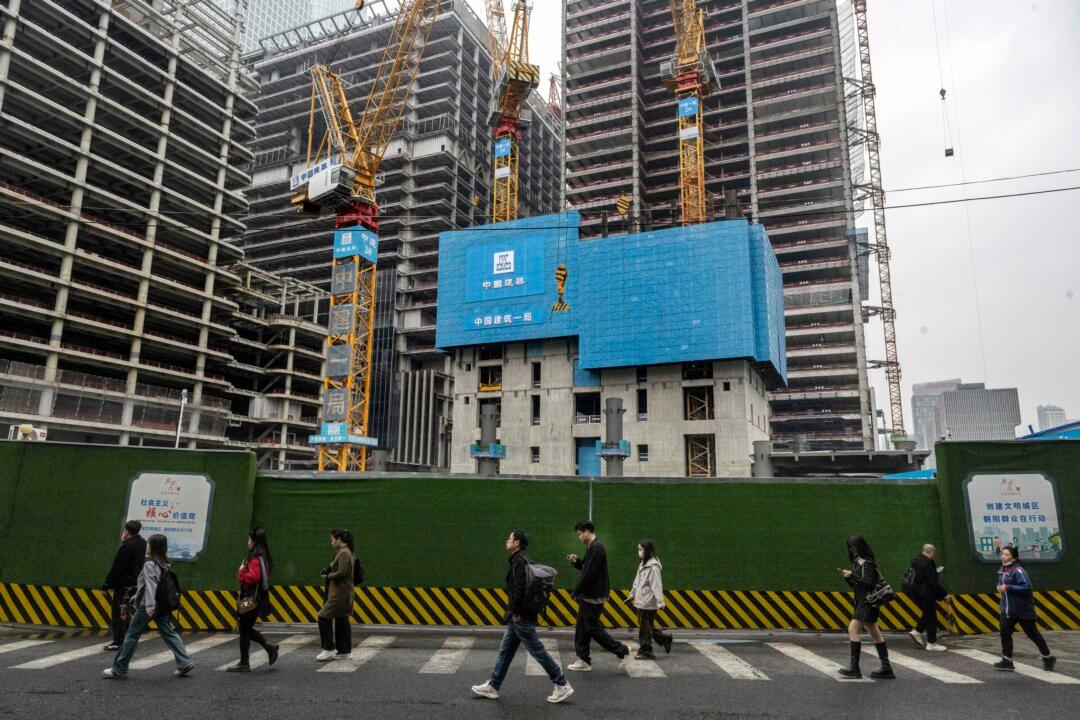News Analysis
Foreign firms are finding it harder to operate in China due to factors such as product boycotts, visa hurdles, government patronage of state-owned enterprises (SOEs), and arbitrary legislative changes.
“Many foreign companies have been denounced by Chinese netizens … H&M, Nike and others are now suffering heavy losses to their reputations in the Chinese market,” wrote state-run media Global Times, in support of Chinese citizens’ boycotts against foreign companies that fail to toe the Chinese Communist Party (CCP) line.
Foreign brands suffer as China turns inward. China’s borders have been effectively closed since March 2020. Visitors need special government approval and must quarantine for as long as 28 days. Multinationals have been unable to send senior managers or engineers into the country, while employee rotations and replacements are largely on hold. Strict COVID-19 rules, which make it difficult for foreigners to enter China, have caused sales to decrease and negatively impacted the operations of foreign companies.
Both U.S. and EU companies are reporting more evidence of government favoritism for domestic firms, as well as the increasing role played by state-owned enterprises in an allegedly market economy. “Buy China” has even become part of the public procurement policies. Additionally, Beijing has been subsidizing manufacturers of strategic products, such as semiconductors, aircraft, and electric cars, in an effort to achieve greater self-reliance. The European Union Chamber of Commerce posits that the CCP’s fixation on national security and self-reliance could alienate foreign firms, while damaging the Chinese economy.
The push for self-reliance, spelled out in the CCP’s 14th Five-Year Plan, means that Beijing must continue to pump hundreds of billions of dollars into research and development to replace foreign advanced technologies. In 2020, the CCP spent $372 billion on research and development, a 10 percent increase from the previous year. This expense comes at a time when public debt is at epic levels and the Chinese economy is faltering.
In addition to economic risk, both domestic and foreign companies in China are facing political and legislative risks. Shortly after the IPO of Chinese ride-hailing app Didi, the company was told to suspend new account registrations. In another random stroke of legislation, educational companies were ordered to stop offering classes with foreign teachers. Wall Street English, the largest provider of English language classes in China, was forced to close most or all of its domestic operations. Consequently, China’s $120 billion educational market lost roughly 60 percent of its value almost overnight.

Liu ‘Jean’ Qing, president of Didi, the number one ride-sharing and taxi-hailing service in China, attends a press event in Beijing on Jan. 26, 2016. Fred Dufour/AFP via Getty Images
Multinationals are painfully aware of the fact that changes in regulation could, at a moment’s notice, impair their ability to do business, while geopolitical events outside of their control could cause a reversal of public opinion, resulting in a boycott.
International brands, such as H&M, Nike, and Zara, have recently faced boycotts in China as a result of speaking out against the CCP’s repression of Uyghur Muslims in Xinjiang. Japanese brands Muji and Uniqlo saw their sales plummet after siding with the international community on the Xinjiang human rights issue.
In 2012, Japanese products were the target of boycotts due to the disputed Senkaku Islands. Now, in 2021, Japanese automakers have seen China sales in sharp decline due to supply chain shortages and COVID-19 restrictions.
Patriotic young people are changing their buying habits, adopting domestic brands, while foregoing imports. Chinese consumers are now switching their allegiance from Starbucks to HeyTea, and from Coke Zero to Yuanqi Senlin. Sportswear company Li-Ning experienced an uptick in sales after announcing that boyband member and actor Xiao Zhan would be their new brand ambassador. Every article of clothing he has touched has gone viral.
A combination of political conflicts and nationalism have hit South Korean products extremely hard. Geopolitical and public opinion fallout from South Korea’s acceptance of the American Terminal High Altitude Area Defense (THAAD) system killed numerous Korean brands and fads, from K-dramas to K-pop. South Korean carmakers have seen their China sales decrease by 7.7 percent in 2016 to 4 percent in the first six months of 2020. Korean cosmetic sales have dropped from 27 percent in 2016 to 18.9 percent in 2020. And the market share of South Korean smartphones in China has dropped from 4.9 percent in 2016 to less than 1 percent in 2019.
Before the U.S.-China trade war began, complaints against the Chinese regime remain such as forced IP transfer, restricted access to certain sectors of China’s economy, and the necessity for a JV partner in many areas. Other continuing problems faced by foreign firms are lack of transparency and strict controls on the inflow and outflow of capital.
Numerous foreign enterprises have reported that technology transfer may be required in order to obtain approval to conduct research and development, or to satisfy export regulations. Forced IP transfer is sometimes a requirement in order to gain commercial concessions. Beijing’s industrial policies continue to limit market access for foreign manufacturers and service providers, giving preference to SOEs or shutting out foreigners completely. At the same time, Chinese firms, particularly SOEs, receive government guidance, resources, and regulatory support. Provincial and local governments can also be significant shareholders in SOEs, biasing their decision-making regarding foreign competitors.
In spite of the aforementioned problems, as well as pervasive corruption, American Chamber of Commerce members have identified regulatory compliance risk as the largest obstacle facing foreign companies. The regulations often change at a moment’s notice, not giving firms enough time to adjust and comply.
Rule changes seem to be moving in the direction of greater state control, rather than liberalization and increasing openness to foreign companies.
Growing business risk in China could ultimately result in a decrease in foreign investment. South Korean direct investment in China, for example, dropped 23 percent in 2020. Similarly, Australian cumulative investment in China decreased by more than $20 billion last year.
So far, 13 percent of American Chamber of Commerce members said that they had reduced planned investments in China. U.S.-China technology related investment dropped by 96 percent from 2016 to 2020, a trend which is expected to continue into the immediate future. The effects on the general economy may already be visible as China’s third quarter economic growth this year was only 4.9 percent, according to the Global Times.
Views expressed in this article are opinions of the author and do not necessarily reflect the views of The Epoch Times.





